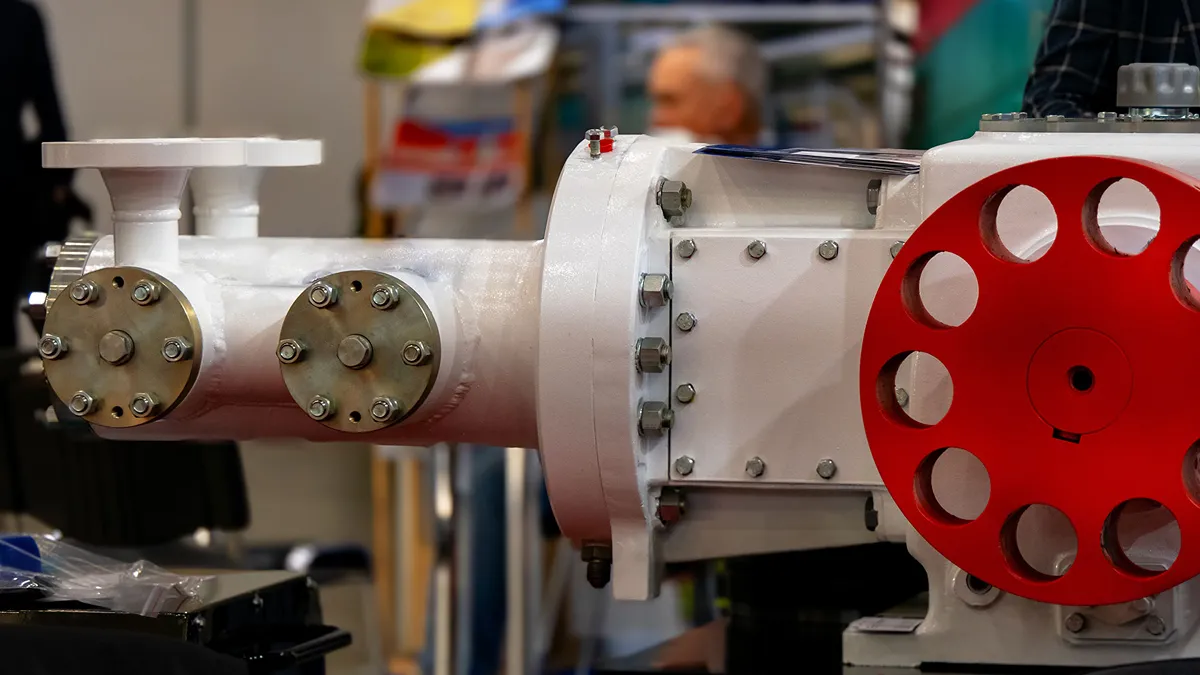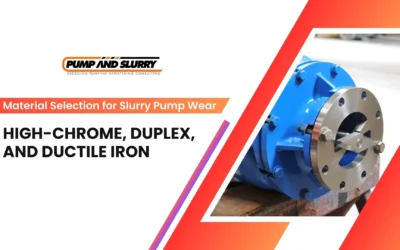Introduction
In today’s demanding industrial landscape, efficiency, reliability, and longevity are key drivers of successful operations. A fundamental component that supports these principles is the industrial pump. Whether in oil refineries, chemical plants, mining operations, or manufacturing facilities, industrial pumps play a vital role in maintaining continuous, smooth processes.
Designed to move fluids ranging from water and oil to chemicals and slurries, industrial pumps are the unsung heroes of heavy-duty operations. They enable large-scale industries to move substances with precision and power, ensuring production lines run without interruption.
This blog explores the core benefits of integrating industrial pumps into heavy-duty applications, revealing why they are indispensable in modern industry.
Understanding Industrial Pumps
Before delving into the numerous advantages of industrial pumps, it’s essential to have a clear understanding of what they are and why they are vital across various sectors.
Definition and Functionality
An industrial pump is a powerful mechanical device engineered to move fluids, such as water, chemicals, oil, or slurries, from one location to another within an industrial process. These pumps are designed to operate under extreme conditions, including high pressures, variable temperatures, and the presence of corrosive or abrasive substances. Their construction typically involves durable materials like stainless steel, cast iron, or specialized alloys that can withstand rigorous use over long periods.
Unlike residential or commercial pumps, industrial pumps are built for scale and intensity. They are capable of handling high-volume outputs and continuous operation without sacrificing efficiency or reliability. Whether it’s transferring crude oil in a refinery, circulating cooling fluids in a manufacturing plant, or managing wastewater in a treatment facility, industrial pumps are integral to keeping critical systems running smoothly.
Their role is not only to move fluids but to do so with precision, safety, and efficiency, making them indispensable in heavy-duty applications across sectors like mining, power generation, petrochemicals, and pharmaceuticals.
Types of Industrial Pumps
Industrial pumps are essential components across a wide variety of heavy-duty operations, from chemical processing to mining and water treatment. Because no two industrial applications are the same, there are multiple types of industrial pumps, each tailored to meet specific fluid handling needs. These pumps vary in design, mechanism, and suitability for different fluids and operational conditions.
Below are some of the most commonly used types of industrial pumps, along with their key features and typical applications.
1. Centrifugal Pumps
Centrifugal pumps are among the most widely used types of industrial pumps. They operate on the principle of centrifugal force, using a rotating impeller to transfer energy to the fluid. As the impeller spins, it increases the velocity of the fluid, which is then converted into flow and pressure.
These pumps are ideal for handling fluids with low viscosity, such as water, chemicals, and light oils, and are best suited for applications requiring high flow rates and relatively low pressure. Their simple design, ease of installation, and low maintenance needs make them popular in industries like water treatment, food processing, and HVAC systems.
Centrifugal pumps are typically used for:
- Water circulation
- Boiler feed
- Cooling systems
- Chemical transfer
2. Positive Displacement Pumps
Unlike centrifugal pumps, positive displacement pumps move fluid by trapping a fixed volume and forcing it through the pump system. This results in a consistent and precise flow rate, regardless of pressure changes. These pumps are especially effective for handling viscous, sticky, or abrasive fluids.
There are several subtypes of positive displacement pumps, including piston, diaphragm, screw, and gear pumps. Their ability to maintain a steady flow under varying pressures makes them indispensable in applications like oil and gas transfer, paint dispensing, and heavy chemical processing.
Key benefits include:
- Excellent for high-viscosity fluids
- Accurate and consistent flow
- Better control over flow volume
3. Diaphragm Pumps
Diaphragm pumps are a specific type of positive displacement pump that uses a flexible diaphragm and check valves to move fluid. These pumps are known for their ability to handle highly corrosive, abrasive, or hazardous fluids without compromising safety.
Their design isolates the fluid from the moving parts of the pump, which minimizes wear and tear while preventing leaks and contamination. This makes diaphragm pumps a top choice in chemical plants, pharmaceutical industries, and wastewater treatment facilities.
Advantages include:
- High chemical compatibility
- Leak-proof design
- Dry-run capabilities
4. Screw and Gear Pumps
Screw pumps and gear pumps are also categorized under positive displacement pumps, but they offer smoother and more continuous fluid flow. Screw pumps use rotating screws to move fluid along the pump chamber, while gear pumps use meshing gears to transfer fluids between the gear teeth.
These pumps are particularly effective in applications requiring precise and stable flow, such as lubrication systems, hydraulic equipment, and dosing applications in the food and beverage industry.
They are known for:
- Quiet operation
- Smooth, pulsation-free flow
- High-pressure capabilities
Selecting the right type of industrial pump depends on the specific needs of the operation, such as the nature of the fluid, pressure requirements, and environmental factors.
The Role of Industrial Pump Companies
Industrial pump companies are instrumental in supplying and servicing these complex systems. These companies provide tailored solutions, from design and installation to ongoing maintenance and support. Their expertise ensures that industrial pumps perform optimally in even the harshest conditions.
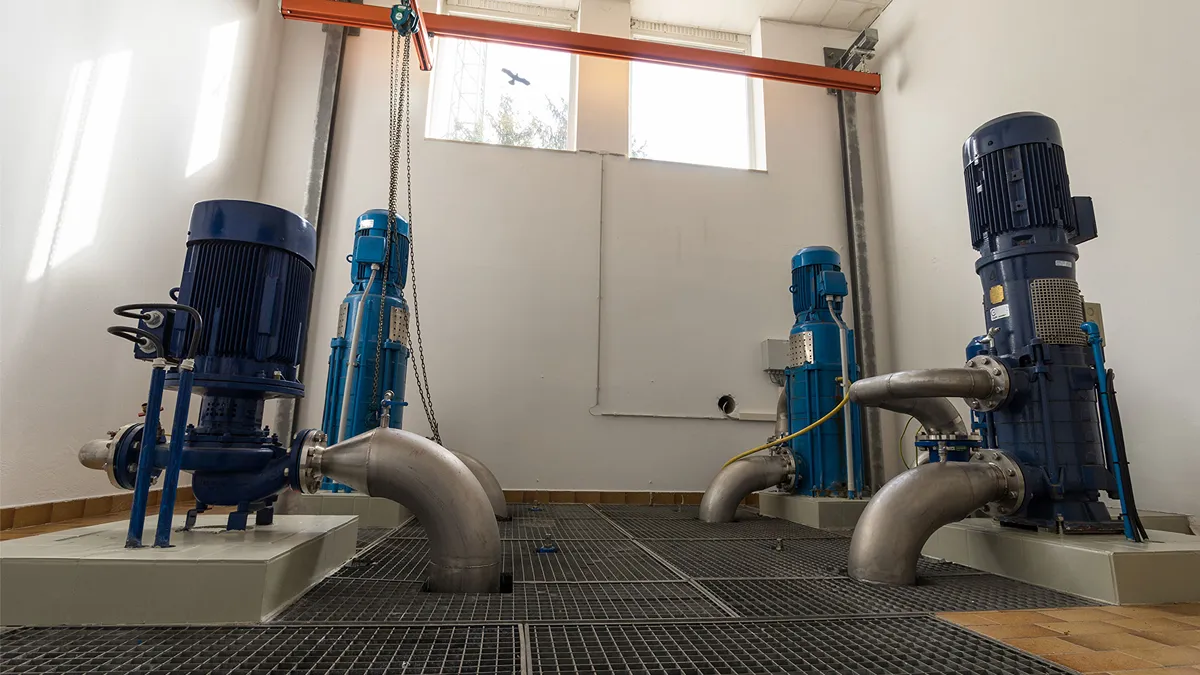
High Efficiency and Performance
One of the most compelling benefits of industrial pumps is their ability to deliver high efficiency under intense workloads.
Modern industrial pumps are designed with advanced engineering to maximize energy usage while minimizing losses. In industries where large volumes of fluid must be moved continuously, even small improvements in pump efficiency can result in significant energy savings over time.
For example, in chemical processing plants, industrial pumps must maintain consistent flow rates to ensure product quality. Advanced impeller designs, variable frequency drives, and smart control systems allow these pumps to adapt to varying operational demands without compromising performance.
The result? Lower energy bills, higher throughput, and greater productivity.
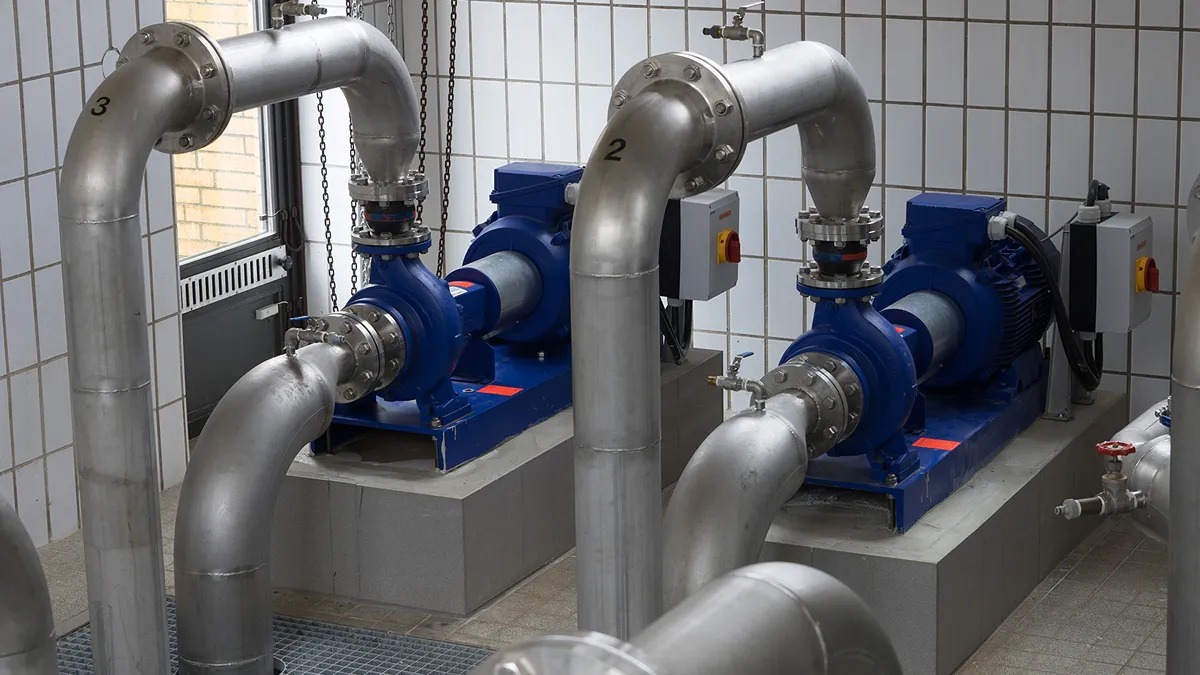
Durability and Longevity
Industrial pumps are built for the long haul. Unlike smaller-scale systems, they are engineered with materials that resist corrosion, erosion, and extreme temperatures.
In mining operations, where slurry and sediment can be highly abrasive, industrial pumps constructed with hardened alloys or rubber linings offer extended lifespans and reduced maintenance needs. Similarly, industrial pumps used in oil refineries are often exposed to high temperatures and harsh chemicals, necessitating materials like stainless steel or specialized coatings.
This durability translates into fewer breakdowns, longer service intervals, and lower total cost of ownership. The longer a pump runs without failure, the more cost-effective it becomes.
Versatility Across Industries
One of the greatest strengths of industrial pumps is their adaptability across a wide range of sectors.
Oil and Gas
In oil extraction and refining, industrial pumps are used for crude transfer, injection, and processing. These systems must operate reliably in remote locations and under extreme pressure conditions.
Chemical and Pharmaceutical
Here, precision is key. Industrial pumps must accurately control flow rates, resist corrosion from aggressive chemicals, and maintain sterile conditions where necessary.
Food and Beverage
Sanitary industrial pumps ensure that products like milk, juice, and syrups are moved without contamination. They are designed to meet stringent hygiene standards and are often made from food-grade materials.
Water Treatment and Utilities
Municipal and industrial water treatment plants rely on industrial pumps to manage water supply, sewage, and stormwater systems.
Thanks to their modular design and range of materials, industrial pumps can be customized to meet the needs of virtually any heavy-duty operation.
Enhanced Safety Standards
Heavy-duty operations often involve hazardous substances or high-risk environments. Industrial pumps are designed with safety in mind to protect both workers and the environment.
Features like double mechanical seals, leak detection systems, and explosion-proof motors help mitigate risks associated with high-pressure fluids, flammable chemicals, or toxic substances.
Moreover, leading industrial pump companies ensure that their systems comply with international safety and environmental regulations, such as ATEX, OSHA, and ISO certifications.
When safety is paramount, industrial pumps offer peace of mind through advanced safeguards and fail-safe mechanisms.
Low Maintenance Requirements
Despite their size and complexity, industrial pumps can be remarkably low-maintenance when properly designed and installed.
Advanced sealing technology, self-lubricating components, and wear-resistant materials help extend service intervals and reduce the need for frequent maintenance. Additionally, many industrial pumps now come equipped with smart monitoring features that alert operators to potential issues before they become serious.
Predictive maintenance enabled by IoT technology is a game-changer. Sensors embedded in industrial pumps can track vibration, temperature, and pressure data, allowing operators to plan maintenance based on actual wear instead of fixed schedules.
This proactive approach reduces downtime, avoids costly repairs, and improves overall equipment efficiency.
Environmental Sustainability
With growing awareness around sustainability, industries are under pressure to reduce their environmental footprint. Industrial pumps play a significant role in this transition.
Energy-efficient industrial pumps consume less electricity, helping facilities meet carbon reduction goals. Moreover, pumps designed to minimize leakage prevent harmful substances from contaminating soil and groundwater.
Some industrial pump companies are also innovating with recyclable materials, biodegradable lubricants, and closed-loop systems to reduce waste and enhance sustainability.
In wastewater treatment, industrial pumps help recycle and purify water, supporting both industrial reuse and environmental conservation.
The environmental benefits of industrial pumps extend beyond compliance. They contribute to long-term ecological responsibility.
Cost-Effectiveness Over Time
While industrial pumps represent a significant initial investment, their long-term financial benefits are considerable.
A high-quality industrial pump will require fewer repairs, consume less energy, and operate reliably for years. When comparing lifecycle costs, industrial pumps often outperform cheaper, less robust alternatives.
Consider a manufacturing facility that installs energy-efficient industrial pumps to replace outdated models. The upfront cost may be higher, but the resulting energy savings, reduced maintenance, and lower downtime can recoup the investment in just a few years.
Moreover, by working with experienced industrial pump companies, businesses can receive expert guidance on pump selection, installation, and optimization, ensuring they get the best value for their investment.
Technological Advancements and Smart Features
The evolution of industrial pumps has been marked by significant technological progress. Today’s pumps are more than just mechanical workhorses. They are smart, connected systems that offer real-time insights into operational health.
Smart Monitoring and Automation
IoT-enabled industrial pumps can be integrated with control systems to provide live data on performance metrics such as pressure, flow rate, and temperature. This data allows for precise process control and early fault detection.
AI and Predictive Maintenance
Some industrial pump companies are integrating artificial intelligence into their systems to predict failures, schedule maintenance, and even optimize flow paths based on historical data.
Remote Access and Control
In remote or hazardous locations, operators can manage industrial pumps remotely through cloud-based interfaces. This not only enhances safety but also improves operational efficiency.
These innovations turn industrial pumps into strategic assets that contribute to digital transformation across industries.
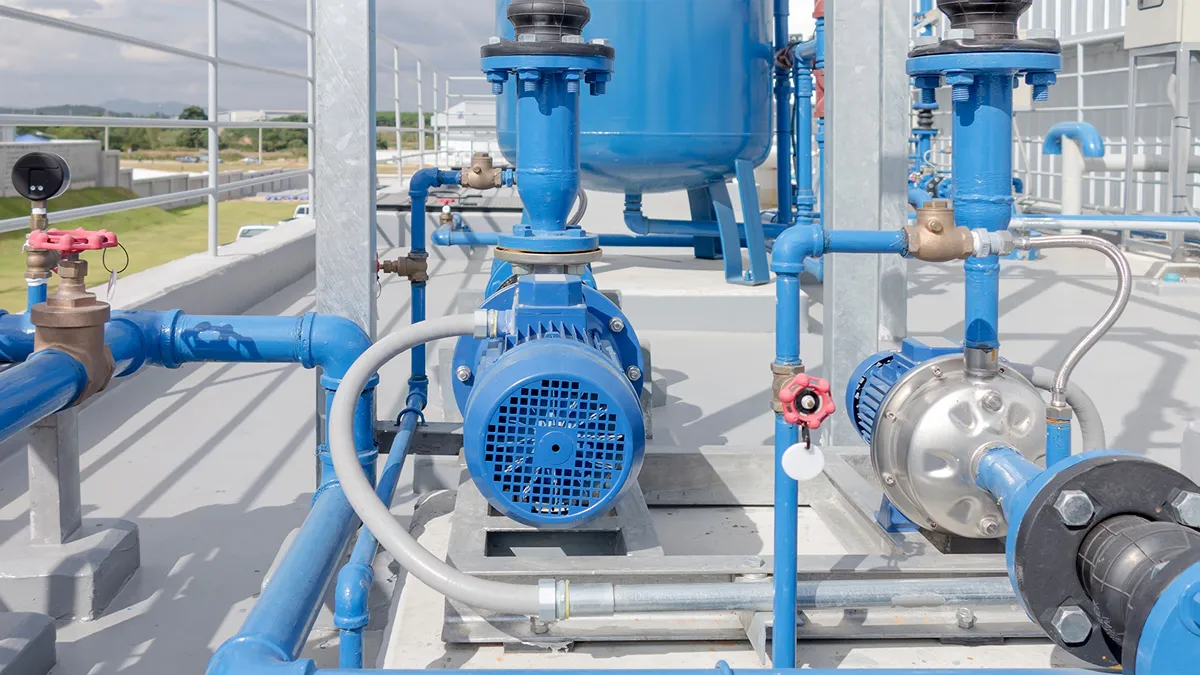
Customization and Scalability
No two operations are exactly alike, which is why industrial pumps are designed to be highly customizable. From flow capacity and materials of construction to size, shape, and performance features, industrial pumps can be tailored to meet specific needs.
Whether you’re scaling up a facility or adapting to new regulatory requirements, industrial pumps offer flexibility and modularity that support growth and change.
Leading industrial pump companies offer comprehensive customization services, helping industries adapt quickly to shifting demands without the need for full system overhauls.
Trusted Support and Global Availability
Another major advantage of using industrial pumps is the global network of support available through reputable industrial pump companies. These companies offer technical assistance, spare parts, and on-site service to ensure minimal disruption in case of issues. Having access to expert support improves reliability and gives businesses the confidence to invest in more complex systems. Whether you’re operating in a major metropolitan area or a remote mining site, assistance from industrial pump companies ensures that your systems stay operational.
In addition to maintenance and troubleshooting, many industrial pump companies also provide training programs for in-house teams, helping operators better understand eq uipment performance, safety protocols, and preventative care. This not only reduces long-term service costs but also empowers businesses to manage their pump systems more independently. With global logistics capabilities, most providers can ship critical components or dispatch service teams quickly, regardless of location, minimizing downtime and maximizing productivity.
Conclusion
The use of industrial pumps in heavy-duty operations is not just a matter of convenience, and it’s a necessity. These powerful machines deliver unmatched efficiency, reliability, and versatility, enabling industries to meet high production demands while maintaining safety and sustainability.
From their robust construction to their advanced features, industrial pumps are a cornerstone of modern industrial infrastructure. With technological advancements and support from expert industrial pump companies, the role of these systems will only grow more critical in the future.
By understanding their benefits and investing in the right solutions, industries can achieve long-term operational success, reduce costs, and uphold the highest standards of performance and environmental stewardship.





